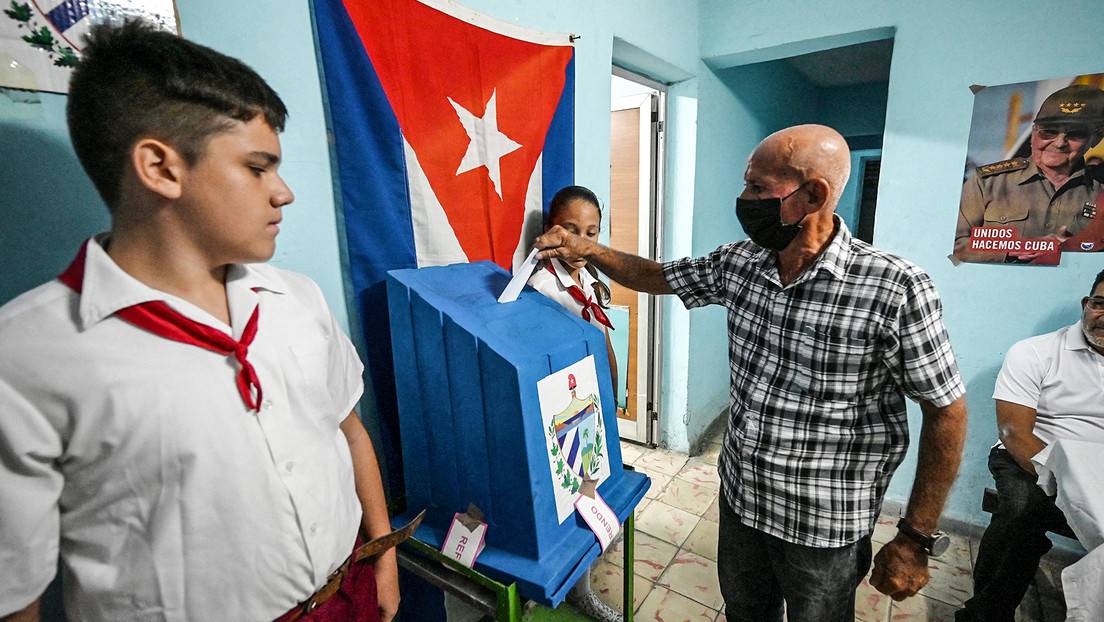Cuba: What is behind the innovative Family Code approved over the weekend?

More than 6.2 million voters in Cuba participated last Sunday in a historic popular referendum in which they decided to approve the innovative Family Code, which will regulate the rights and duties in interpersonal relationships at home and which also meant the end of a law that has been in force since 1975.
The aforementioned referendum marked the final stage of a prolonged process of consultation and review convened by the Cuban State since 2021, to incorporate into national legislation issues such as the recognition of sexual diversity, equal marriage and adoption for homosexual couples, which will begin a process of inclusion, formation and recognition of non-traditional families.
The new regulations included a popular consultation which was carried out by constitutional mandate, between February and April 2022, as well as an extensive debate within the Cuban Parliament that last July approved the final version of the regulations, which contains 471 articles.
The text, for example, includes matters such as motherhood or sentimental paternity in the concept of family, which allows an infant to have more than one father and one mother, eliminates labels such as stepmother and stepfather, and enables surrogacy or «solidarity» gestation, in reference to the assistance that a woman can provide to gestate a baby in her womb if a couple requests it.
In this sense, the regulations recognize four types of parental affiliation for the family: natural procreation, adoption, assisted reproduction and the ties that are built from socio-affectivity. All of these will have the same legal recognition and responsibility in matters such as the obligation to provide food, inheritance rights and other legal effects, which defend the principles of equality and non-discrimination.
In addition, based on the 2019 Constitution, which establishes the impossibility of any discrimination based on gender or sexual orientation in Cuba, the new Family Code offers the possibility that a child can take his mother’s last name first, which puts an end to the conservative tradition of imposing the father’s surname on newborns, a fact that would violate the principle of equality between women and men.Protection and responsibility with the family
The new norm also establishes duties and responsibilities of parents towards children, of children towards parents, as well as the protection and comprehensive care of other members of the household such as uncles, aunts, nephews, nieces and grandparents.
Likewise, it expands the protection of children and adolescents, reinforces urgent protection against discrimination and violence, increases the possibility of reporting for any person who knows of violating acts, defines the ways of channeling breaches of the legal obligation to give food, and details the causes of the cessation of the legal obligation to provide food and its exceptions.
In addition, it penalizes family and gender violence, sanctions all forms of corporal punishment, especially when it comes to people with disabilities, older adults and minors. Likewise, it promotes the rights of women and people with different orientations on equal terms with men.
The Cuban president, Miguel Díaz-Canel, was at the forefront of the campaign to approve the law, through different messages on social networks and television programs, which showed the scope of the regulations in favor of expanding the rights of Cubans .
When the law was approved by the National Assembly of Cuba, the Minister of Justice, Oscar Silvera Martínez, stressed that it was «a more solid proposal» because it is «impregnated with popular sovereignty» and reflects «the revolutionary essence» of protecting human rights, social justice and humanity.
In this sense, he pointed out that the code benefits the entire country, because it shows «its inclusive, protective and equal character», because «it does not regulate rigid or pre-established family models», it allows conflicts to be resolved and rights to be exercised, «taking into account the characteristics, situations and possibilities of each person”.
Popular referendum in Cuba
Before being approved by the Cuban legislature, the proposal had a prior consultation that collected opinions, criticisms and recommendations that finalized most of the modifications made to the latest version of the code.
Thus, the topics and ideas that had the most debate were those related to filiation, parental relationships, the institution of marriage and other institutions of guardianship and protection in the family sphere.
For this consultation, 93% of the total number of voters in Cuba participated, some 6.4 million people of the more than 8.5 million who were summoned. These people attended 79,192 meetings, 1,159 of these held abroad, in which 434,860 proposals were issued, of which 61.96% declared themselves in favor of the Family Code.Who was against the new Family Code?
Despite the innovative issues included in the regulations, there are still conservative sectors inside and especially outside the Caribbean island, such as the political opposition and the Permanent Committee of the Conference of Catholic Bishops of Cuba, who oppose its approval.
«We see with disappointment that these and other proposals that were notoriously questioned by society, remain intact in the Code that is now presented for referendum», said the group of Bishops in a statement days before the vote.
These sectors that reject the law argue that the text should not include rights related to “gender ideology”, nor allow homosexual marriage or the adoption of children by these couples.
In the same way, they oppose multi-parenthood, the progressive autonomy of people to decide on their own body and assisted pregnancy, because they consider that these break with the traditional criteria of what a ‘family’ is supposed to be.
Hazte socio 👍
Con tu donación aportas a la sostenibilidad económica y existencia de este medio.
Elige cómo quieres aportar a la existencia y financiamiento colectivo de este medio!



